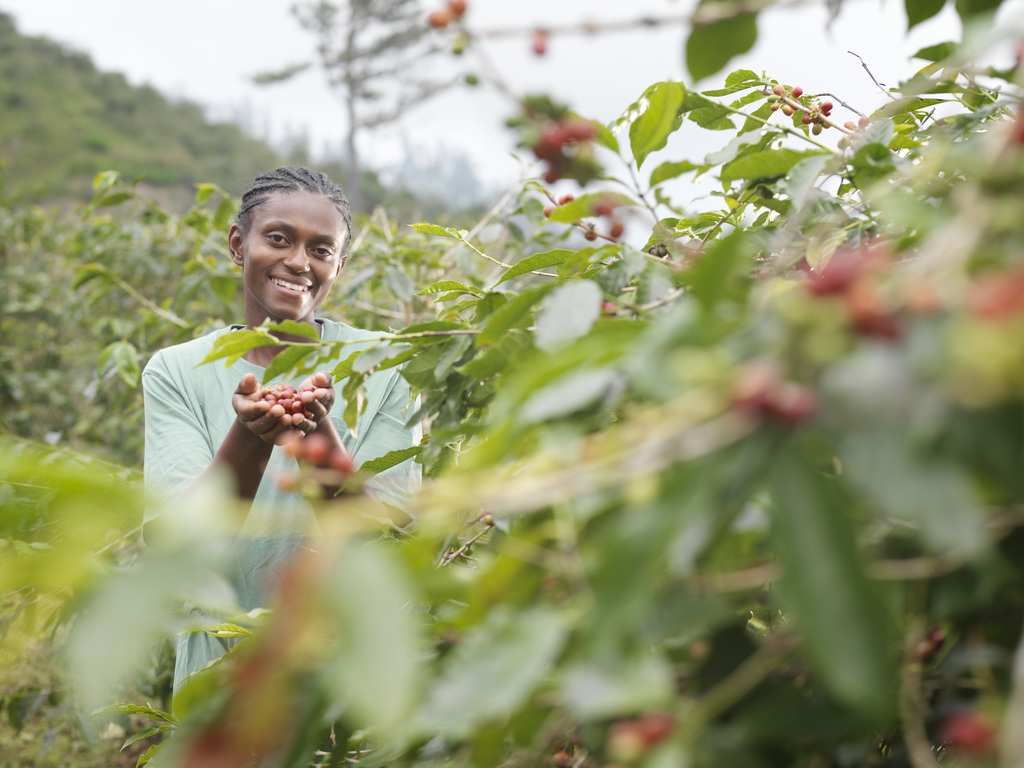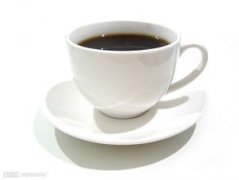Coffee basic knowledge Jamaica and Jamaican Blue Mountain Coffee

Jamaica-hearing this name, I think of Jamaica's Blue Mountain Coffee. It makes people feel a bit mysterious.
In fact, Jamaica means "island of springs" or "land of forest and water" in Indian Arawak (Jamaica was colonized by Spanish in 1509 and was occupied by British forces in 1655) the country covers an area of 10991 square kilometers, located in the northwest of the Caribbean Sea, facing Haiti to the east across the Strait of Jamaica, and about 140km north of Cuba. Is the third largest island in the Caribbean. The coastline is 1220 kilometers long and belongs to tropical rain forest climate, with an annual average temperature of 27 ℃. The population of Kingston, the capital, has reached more than 1 million (the national population is nearly 3 million).
Jamaica is one of the important coffee producing countries in the world. It produces the most valuable coffee in the world called "Blue Mountain" coffee. It is reported that the "Jamaican Blue Mountain Coffee beans" have been grown in the mountains since 1725. Here is shrouded in fog all the year round, the temperature difference is very big, and the growing period is as long as 10 months. "Jamaican Blue Mountain Coffee beans" has rich aroma and unique flavor.
It turns out that this is the legendary Blue Mountain. The Blue Mountain Blue, which is rich in "Blue Mountain Coffee", comes from the reflection of the blue sea.
The Coffee Garden in Blue Mountain
Coffee beans
Carefully roasted blue mountain coffee beans
Beach outside Port Antonio, Jamaica
Beautiful scenery of Jamaica
Kingston, capital of Jamaica
Almost everyone who has heard of Jamaica Blue Mountain Caffeine (Jamaican Blue Mountain) knows that it is the most expensive coffee in the world, but not everyone knows why. Like Rolls-Royce cars and Strawley violins (Stradivarius violin), when something gains the reputation of "the best in the world", that reputation tends to make it its own identity and become an immortal myth.
The best Jamaican Blue Mountain Coffee is undoubtedly the most famous coffee in the world. It tastes more expensive than it looks. The real Blue Mountain Coffee is made from the best coffee beans in Jamaica, which is the fun of tasters. It has all the substances of coffee, rich flavor, balanced, fruity and perfect sour taste, three tastes (sweet, sour, bitter) excellent blending, for coffee in the best, generally a single drink. In addition, the flavor of high-quality fresh Blue Mountain coffee is particularly long-lasting, as drinkers say-endless aftertaste. But in fact, few people know the history of Blue Mountain Coffee and why its price is so high.
In 1725, Nikolai? Sir Sir Nicholas Lawes brought the first blue mountain coffee trees from Martinique to Jamaica and planted them in the St. Andrew area. In eight years, Jamaica exported more than 375 tons of pure coffee. In 1932, when the Jamaican law was passed to encourage coffee farming to reduce the island's dependence on sugar exports, coffee production peaked and more than 15000 tons of coffee was harvested.
In 1948, the quality of coffee had declined and Canadian buyers refused to renew their contracts, so the Government of Jamaica established the Coffee Industry Committee and made changes to the "Jamaican Coffee Industry" to standardize the process and improve the quality of coffee. to make marketing equal in order to save the fate of top coffee. By 1969, the market was guaranteed by the use of Japanese loans to improve the quality of production. By 1981, about 1500 hectares of land in Jamaica had been reclaimed for coffee cultivation, followed by investment in another 6000 hectares of coffee land. in fact, the Blue Mountains area today is a small area with a planting area of only 6000 hectares. it is impossible to grow all coffee marked "Blue Mountain" there. Another 12000 hectares of land is used to grow two other types of coffee (non-Blue Mountain Coffee): Alpine Top Coffee (High Mountain Supreme) and Jamaican premium coffee (Prime Washed Jamaican). Their quality and taste are not as good as those of Blue Mountain.
You might ask what makes Jamaican Blue Mountain Coffee so special?
The answer is everything about it. The real Blue Mountain Coffee is one of the most advantageous coffee growing conditions in the world. The weather, geological structure and topography of Jamaica provide a unique ideal place. Designated Jamaican Blue Mountain Coffee can only be grown in the Blue Mountain area, northeast of the Jamaican capital Kingston. Coffee grows in the mountains at an altitude of 1500 to 5000 feet. The cool, foggy and frequent rain make the fertile land Rain Water reconcile. Here people use mixed planting to grow coffee trees next to banana and avocado trees on terraces. The coffee tree is mainly the typical "Geisha High Bred" of Yue Cup guests. Seeds from these trees have been exported to other countries, such as Hawaii, Kenya, Papua New Guinea and elsewhere, but wherever they go they also have the ability to recreate the taste of Blue Mountain coffee beans.
Some small estates also grow Blue Mountain Coffee, such as Wallenford Estate, Sliver Hill Estate and Atlanta Estate in J. Martinez. Even the largest landowners in the region are small-scale plantations by international standards, many of which are small landowners whose families have been working on the land for two centuries. The coffee industry in Jamaica faces a series of problems, such as the impact of hurricanes, increased labor costs and difficult mechanization of terraces. It is difficult to rationalize planting on many small estates and farms.
However, Blue Mountain Coffee is a coffee retailer that values credibility and keeps some coffee in stock anyway. A leading British retailer said: regardless of the price, he will continue to sell Blue Mountain coffee all year round because he has many customers who only recognize "Blue Mountain".
What is the actual annual production of Jamaica?
Jamaica is one of the small coffee producers in the world, with an annual harvest of about 40000-60 kg / sack (Jamaican Blue Mountain coffee is actually shipped away in 70 kg barrels, they are the last countries to this day still use this traditional packaging method, but they produce 60 kg/ sacks, as that is the international standard for measuring coffee production). Compare Brazil, the world's largest exporter of coffee, with an annual production of 30000000 bags to 60 kg per sack.
The Japanese have invested heavily in the Blue Mountain Coffee breeding area in Jamaica, with Japan's UCC accounting for 90 per cent of annual production, while the rest goes to the British royal family or other companies, or 3500 barrels. The real Blue Mountain Coffee has a unique taste, making it the most expensive coffee in the world. Its demand is very high, so some of the market is in short supply. Therefore, it is rare to see the real blue mountains on the market, and most of them are comprehensive blue mountains with very close taste.
The Jamaican government used to insist that all Blue Mountain coffee is roasted in Jamaica to ensure that the quality remains the same. In fact, baking is a fine art, and it takes experience, training and expensive equipment to do a good job. From the consumer's point of view, coffee beans should be obtained and drunk immediately after baking. Coffee roasting in Jamaica cannot meet this requirement. Now, Jamaican raw coffee beans can be exported.
If you are a coffee lover and enjoy the coffee experience, be sure to try the world's most attractive Jamaican Blue Mountain Coffee.
Notes:
St. Andrew: today's St. Andrews is still one of the three major producers of Blue Mountain Coffee, while the other two are Portland and St.? St.Thomas producing area.
Barrel packaging: this is a replica of the Bonifieur barrel produced in Guadeloupe in the last century, which was originally used to carry flour shipped from the United Kingdom to Jamaica, usually with a trademark and the name of the manufacturer. The Coffee Industry Council issues certificates for all authentic Jamaican coffee and bears a stamp of approval before export.
Japan UCC: founded in 1933 in Kobe, Japan, UCC Oshima Coffee Company (UCC UESHIMA COFFEE CO., LTD. (UCC). Is a leader in Japan's coffee industry, with markets all over the world.
TIPS:
Jamaica is an island in the Caribbean with a small area. Coffee trees are planted on the slopes of the Hengduan Jamaica Island. The products are divided into three categories by region of production:
A:BM (Blue Mountain); B:HM (High Mountain); C:PM (Braim, Ozshut). BM, HM and PM pay more attention to the quality and price order in front of the brand, PM > HM > BM. The price of BM is 15 times that of HM, and the price of HM is about 25 times that of other products. in order to ensure quality, any grade of coffee beans must have the following conditions, that is, consistent harvest, consistent shape and size, and good taste.
Taste characteristics: the aroma is very full-bodied, with long-lasting fruit flavor
The best baking degree: medium baking. Deep roasting can make you lose its characteristics. To taste its original taste, you'd better choose fresh coffee beans.
Important Notice :
前街咖啡 FrontStreet Coffee has moved to new addredd:
FrontStreet Coffee Address: 315,Donghua East Road,GuangZhou
Tel:020 38364473
- Prev

Basic knowledge of coffee Le coffee types of coffee
Coffee is as important to Europeans as tea is to Asians. We say that after dinner, for the French, coffee is indispensable for breakfast or lunch. Nowadays, coffee has long been a favorite drink all over the world. Although it is not very popular in Asia, it can be described as fashionable and very popular, and beautiful coffee can be seen everywhere on the street.
- Next

Global Coffee planting Base Brazil is the place where coffee is produced
Brazil is the producer of coffee. All grades and types of coffee account for 1/3 of the world's consumption. There are many kinds of coffee here. Although there is not much superior coffee, it can be used to make mixed coffee with other coffee. The characteristics of the taste: mild, moderate bitterness, soft aroma. The best fried degree: the output of medium fried Colombian coffee is second only to Brazil.
Related
- Beginners will see the "Coffee pull flower" guide!
- What is the difference between ice blog purified milk and ordinary milk coffee?
- Why is the Philippines the largest producer of crops in Liberia?
- For coffee extraction, should the fine powder be retained?
- How does extracted espresso fill pressed powder? How much strength does it take to press the powder?
- How to make jasmine cold extract coffee? Is the jasmine + latte good?
- Will this little toy really make the coffee taste better? How does Lily Drip affect coffee extraction?
- Will the action of slapping the filter cup also affect coffee extraction?
- What's the difference between powder-to-water ratio and powder-to-liquid ratio?
- What is the Ethiopian local species? What does it have to do with Heirloom native species?

